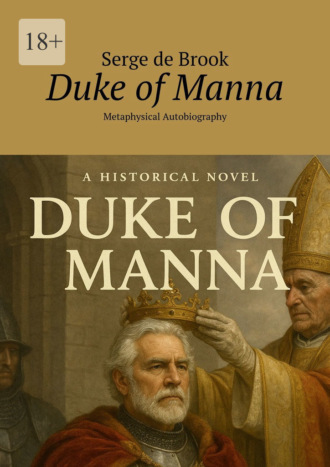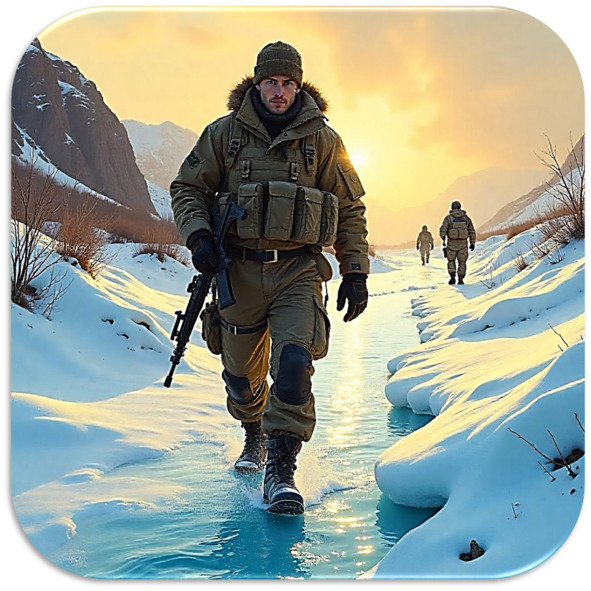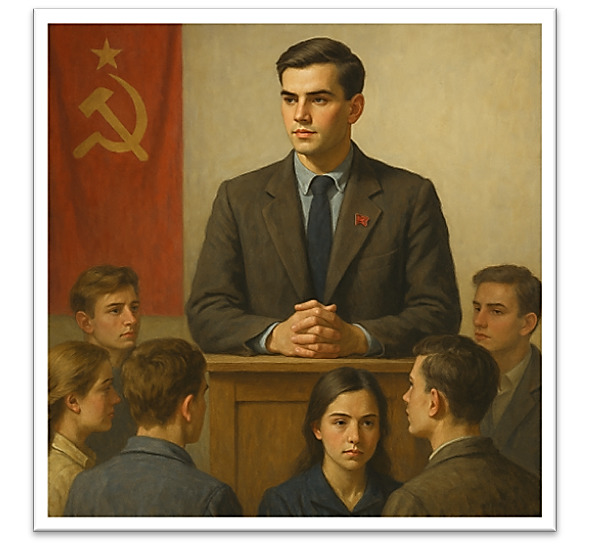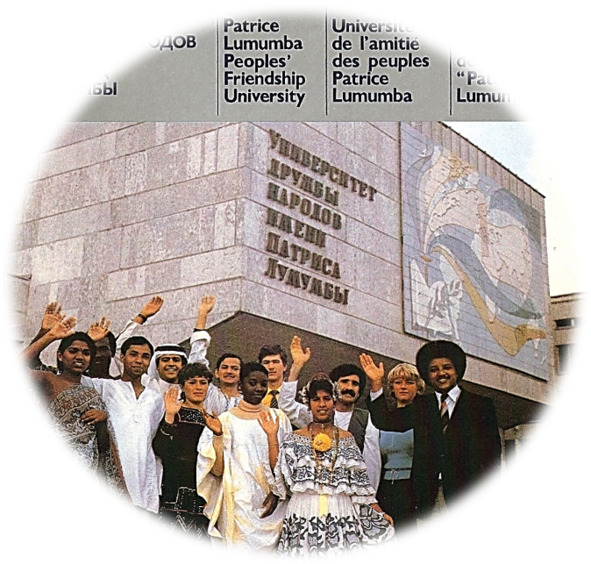
Полная версия
Duke of Manna. Metaphysical Autobiography
He became a member of the Ukrainian youth team in track racing for the leader.
His coach was Viktor Nikolaevich Bykov, a Soviet track cyclist, who competed for the USSR national team in the first half of the 1970s.
Two-time world champion in team pursuit, champion of the all-Union and republican championships, participant in the Olympic Games.
Jan, a thin young man with piercing blue eyes and perpetually dishevelled hair, balanced on the edge of two completely different worlds.
During the day, he stared at oceanography textbooks, memorizing the complex names of planktonic organisms and the patterns of sea currents.
In the evenings, he turned into a whirlwind on the cycling track, his bike, shining under the spotlights, becoming an extension of his own body.
The combination of intense mental stress and gruelling training required colossal self-discipline, but Jan coped, it all seemed natural to him, even necessary.
Viktor Nikolaevich Bykov, his coach, was a legendary figure.
His stern, piercing gaze hid behind it a huge experience and remarkable knowledge of the business.
Bykov did not spoil Jan with indulgences.
The training was brutal, bringing the young man to the extreme limit of his physical capabilities.
But Viktor Nikolaevich shared with him not only technical skills, but also the wisdom of life, telling stories about his victories and defeats, about the difficult paths to the top and the bitter taste of defeat.
One day, after a particularly gruelling training session, Jan, sitting on a bench, thought about his future.
Oceanography attracted him with the boundless mystery of the ocean depths, cycling – with the thrill of speed and victory.
He imagined himself at the helm of a research vessel, then on the podium, to the applause of the crowd.
Viktor Nikolaevich came up to him, sat down next to him and silently put his hand on his shoulder.
Jan realized that the coach felt his hesitation.
«Jan,» Viktor Nikolaevich began, his voice calm and confident, «you stand on the crossroads of two paths.
But this does not mean that you are obliged to choose only one.
Your mind and your body are two forces that can work in harmony.
The ocean is vast and multifaceted, and sport will teach you discipline and persistence, which are necessary in any life, especially in science.»
These words were a real revelation for Jan.
He realized that he did not need to give up one thing, that his passions could complement each other.
He will continue to study to be an oceanographer, while improving his cycling skills.
And who knows, maybe it is this combination of intelligence and strength that will help him make great geographical discoveries in the future, based on careful scientific research and tireless work, based on the iron discipline nurtured on the cycling track under the watchful eye of Viktor Nikolaevich Bykov.
His path had just begun, and he was ready for any obstacles, ready for victories and defeats, ready to explore both the boundless oceans and the limitless possibilities of his own «I».
Chapter Three – THE GREY FILES
«The deeper you go into the archive, the more ghosts you meet.» – Archivist’s proverb, Moscow State Library
Chapter Summary:
Transferred to a shadowy KGB department in Moscow, Jan finds himself navigating a subterranean labyrinth of forgotten truths and classified legends.
Amid cryptic dossiers and whispered warnings, he uncovers mysterious links to the Sovereign Order of Saint John – a secret thread woven through world events.
One name reappears across continents and files: Nelson Mandela. Jan’s journey is no longer about service; it becomes a spiritual reckoning written in symbols, silence, and fate.
Jan’s reassignment to a KGB unit in Moscow was veiled in silence.
There were no goodbyes, only a sealed train compartment, a black suitcase, and a cold welcome from men whose faces betrayed no human warmth.
He was not a spy. Not officially.
His designation was «military analyst assigned to cross-border operations.»
In practice, it meant listening more than speaking, noticing what others ignored, and surviving the invisible war.

The basement of the Lubyanka was colder than legend made it.
The walls sweated history.
In the deepest corridors, Jan was given a desk, an access code, and a single task: to translate and interpret fragments of intercepted communication and defector testimony.
These were stored in what was known internally as the Grey Files – cases that lacked evidence, but overflowed with implication.
It was there he first encountered the name «Sovereign Order of Saint John.»
A whisper in a Hungarian letter, a symbol etched in the margin of a West German dossier, a phrase spoken in dread by a prisoner from Ethiopia. It made no sense. And yet, it rang like a bell within him.
Jan began cross-referencing. Obsessively. The spiral-and-sun symbol appeared again, buried in Vatican communiqués and African tribal correspondence.
He followed leads that were not meant to be followed.
A senior officer noticed – and summoned him.
«You’re a curious one, Kowalsky,» the man said, lighting a cigarette with hands that had signed death warrants.
«Curiosity here gets you doors. Or graves. Choose carefully.»
That night, Jan returned to the files.
One folder had no label. Inside: a map of Rhodesia, three photographs, and a name: «Nelson Mandela – contact classified.»
Jan did not sleep.
The summons had been issued. Not from Moscow. From fate.
After graduating from technical school, Jan began an amazing story that turned his life upside down.
Together with his best friend, with whom he grew up in Gorlovka, they went scuba diving in the breathtaking waters of Tarkhan Kut.
They were absorbed in the amazing beauty of the underwater world, and Jan completely forgot about his conscription into the army and arrival at the Kharkov military registration and enlistment office.
The policeman who found the submariners handed Jan a summons with instructions to immediately report to the military registration and enlistment office.
When Jan arrived, a «buyer-officer» was waiting for him, who offered him training at the school of military intelligence special communications specialists.
Thus began a new stage in Jan’s life – service and mastering a military specialty in the city of Pavlograd.
With burning eyes and a desire for new challenges, Jan accepted the offer and became a cadet at the special communications school.
His diligence, ability to quickly learn and determination helped him become a senior sergeant of special communications after finishing his school courses.
Cadets at the communications school were prepared for service in Cuba, but everything changed overnight and he had to continue his service in Afghanistan, where he went in December 1979, when Soviet troops had just entered to help the Afghans protect their borders from the invasion of the American military machine.
December Afghanistan greeted Senior Sergeant Jan with an icy wind and no less icy indifference of the mountains.
The Cuban sun, burned out of memory during a year of intense study, seemed so distant and unreal. Instead of palm trees – bare, wind-eaten rocks, instead of an azure sea – a brown, dusty landscape.
Instead of plans for a romantic service in the tropics – a cargo plane, crammed with soldiers, with weapons that seemed too heavy, and with a feeling of uncomfortable uncertainty in the soul.
He, a communications specialist, was assigned to a reconnaissance company operating in Kandahar Province.
The fancy equipment he had learned to use at school immediately proved useless.
The main means of communication were outdated radios, constantly wheezing and prone to unexpected failures.
Instead of cozy rooms – cold, damp dugouts, hung with wires like a spider’s web.
Night after night, Jan spent adjusting these capricious devices, fighting interference, trying to catch a weak signal from headquarters.
In the first months of the war, he was mainly busy with technical support, but he soon realized that «protecting the borders from the American war machine» was just a beautiful phrase.
The reality turned out to be much harsher.
This was not a war between armies, but a protracted guerrilla conflict, where the enemy was everywhere and nowhere at the same time.
The mujahideen acted in small groups, using knowledge of the terrain and the support of the local population.
Jan saw the results of their actions – blowing up trucks, ambushes, surprise attacks. Constant tension and severe lack of sleep.
In the impassable mountains, where the sun was scorching during the day and the nights were icy, he learned the true face of war.
One day, during a patrol, they were ambushed.
Jan remembered all the training, all the theories, but the practice was much more brutal.
Bullets whistled nearby, the ground shook from explosions.
He helped a wounded radio operator, hiding behind a rock, while the rest of the soldiers fought off the mujahideen.
In this hellish nightmare, he saw the true meaning of the word «survival».
It was not just following orders, but fighting for every second of your life.
After that incident, he was no longer just a communications specialist – he became a Warrior of Light, who went through hell and understood the value of every living day.
He did not look for enemies. He looked for order – meaning. One night, on duty, looking into the tracking device, he said out loud:
«I do not spy. I observe the truth hidden under the noise.»
His colleague just chuckled, not understanding.
But Jan understood. It was an awakening.
He became an excellent student of combat training.
He was sent to a closed school at the military institute, where they taught the basics of strategic intelligence, topography, cryptography, psychology and the history of covert operations.
There he read about the ancient orders, about the first messengers of light, who had been active in ancient times – and learned about their similarity to what who he was becoming.
Unexpectedly for himself, he began to see dreams – symbolic, full of signs.
One of them was repeated: he was standing in a roofless temple, in the middle of the desert, and in front of him lay an ancient sword.
The inscription on the pedestal read: «Serve not the authorities, but the Light.»
From then on, Jan no longer doubted: his path was not limited by uniform, rank or position.
A different soldier was awakening in him – not just a state soldier, but a metaphysical one. A soldier of Light.
Afghanistan changed him irreversibly, forever leaving scars on his soul that do not heal with time.
He realized that a real war is not a beautiful picture on a map, but a dirty, cruel reality, where life is valued more than any orders and awards.
And he continued to serve, knowing that the lives of his comrades depended on his work.
Jan believed that he contributed to the peaceful development and maintenance of peace in the region, becoming an important figure in serving the Motherland.
And so, Jan’s story continued to evolve, filled with new challenges and opportunities.
His path remained full of adventures and trials, but his determination and loyalty to the ideals of the service helped him overcome all difficulties on the way to a better tomorrow.
Chapter Four – THE MANDELA ENCOUNTER
«Great men do not speak to convince – they speak to awaken.» – Journal of an Anonymous Knight of the Order
Chapter Summary
Jan is deployed under diplomatic cover to Southern Africa.
There, in the crucible of apartheid’s final decade, he encounters Nelson Mandela – not just as a politician, but as a spiritual beacon.
This encounter transforms Jan’s understanding of justice, duty, and inner freedom.
Mandela’s words become seeds that will grow into Jan’s lifelong mission.
It was Johannesburg, 1994. Officially, Jan was there under a cultural exchange program.
Unofficially, he was observing regional structures for influence, fracture, and future alliance. His mission was not intelligence.
It was insight.
Through whispered channels, Jan was brought to a quiet room behind a nondescript office.
The air was warm, the lighting soft, and the man before him neither tall nor imposing.
And yet, when Mandela raised his eyes, Jan felt as if he stood before a mountain that had learned to speak.
Their conversation was brief, coded, symbolic.
They spoke of reconciliation, of trust beyond borders, and of the fire one carries without burning others.
Mandela did not ask who Jan truly was. He knew.
As Jan left, Mandela gave him an envelope.
Inside was a single phrase, handwritten:
«Your chains are in the mind – so are your wings.»
Jan understood then: Africa was not a mission field.
It was a mirror.
And the Sovereign Trust, still veiled in mystery, had roots here.

After returning from service in Afghanistan, Jan returned to his hometown as a seasoned warrior, ready to take on the new challenges that lay ahead of him.
The Party saw him as an example for the youth and entrusted him with the post of third secretary of the district Komsomol committee.
Jan, with a longing for the merciless Afghan sun barely hidden under his tanned skin, found himself in the stuffy atmosphere of the district Komsomol committee.
His camouflage was replaced by a strict suit, and his machine gun by a briefcase with documents and a heavy volume of «Lenin’s Collected Works.»
The smell of gunpowder was replaced by the smell of old paper and sweetish dust – the smell of the stagnant life of a small town, where events were now measured not in minutes of clashes, but in hours of endless meetings.
Third secretary – it sounded almost like a joke.
After Afghanistan, where he had made decisions on which the lives of his comrades depended, this work seemed petty and meaningless.
His reports on the need to repair the school stadium or the plan to collect waste paper caused an ironic smile in him.
He remembered explosions, shootouts, fear, and now he was surrounded only by papers with reports.
However, Jan quickly realized that there were «combat actions» here too.
Less dramatic, but no less important.
He had to learn to manoeuvre in the labyrinth of the internal politics of the district committee, where intrigues and the struggle for influence were no less fierce than on the Afghan hills.
He learned to say the right words, smile at the right people, skilfully avoid sharp corners in discussions, without losing his strong character, forged in the flames of war.
His Afghan experience unexpectedly turned out to be useful.
The ability to quickly analyse a situation, make decisions under pressure, and feel people – all this helped him work effectively in a new environment.
He organized a number of events that attracted the attention of young people and earned praise from the leadership.
Sports competitions, creative contests, hikes – all this was imbued with his energy and organizational skills, which had manifested themselves early in Afghanistan.
But sometimes he was pierced by nostalgia for that time, for the brotherhood in battle, for the sense of integrity and clarity of tasks.
Here, in the district committee, everything was more blurred, the goals seemed less significant.
He found himself beginning to be sceptical about some of the party’s instructions, but for now he kept his doubts to himself.
He understood that the war had left an indelible mark on him, and his view of the world differed from that of his colleagues.
However, he decided to use his skills and experience to benefit his people, even if it was not at all how he had imagined it after returning from the war.
He continued to serve, but now in a new war – a war for a better future for his city, with different weapons and different enemies.
Jan readily took on this responsibility and worked for two years, leading the youth of his hometown.
He shared his experience and knowledge with young people who were striving for new achievements and changes in their socialist country.
As a youth mentor, Jan became an important and influential figure, inspiring young people to actively participate in public life and strive for self-improvement.
He was an example of dedication and loyalty to the ideals of socialism, encouraging young people to actively participate in the public and political life of the country.
Jan saw in every young person the potential and power for change, and his goal was to help them reveal their talents and abilities for the benefit of society.
His time as the secretary of the district committee of the Komsomol was filled with work, dedication and the desire to create a better future for all citizens.
Thus, Jan, returning from service, became a symbol of hope and inspiration for the youth of his hometown, leading young people to new heights of knowledge and aspirations.
His experience and wisdom served as the basis for the development and education of a new generation of leaders ready to bring positive changes to the world and society.
But these were not easy times. An internal crisis of the state was beginning, ideals were being emasculated, formality was replacing the essence.
Many perceived the Komsomol as a dead shell.
Jan, on the contrary, tried to breathe living meaning into it.
Jan spoke of duty, of truth, of honor – words that had long been avoided.
Chapter Five – THE TRUST CALLED MANNA
«Those who hold the vault must first empty their hearts.» – Inscription above the Chamber of Custodians
Chapter Summary
Jan is initiated into the hidden structures of global spiritual and financial governance – a trust known as Manna World Holding Trust.
He learns that beneath politics lies stewardship, and beneath currency lies covenant.
The Order is not merely historic – it is alive, and it has chosen him.
The invitation came sealed in red wax.
The coordinates were encrypted, but the name at the top was unmistakable: Manna World Holding Trust.
Jan arrived at an ancient estate in southern Italy.
Marble columns, golden lions, and a silence that spoke louder than ceremony.
There were others – men and women of various nations, bound not by allegiance, but by resonance.
He was guided through oaths, rites, and ancient texts.
The Trust, he learned, was older than any central bank, holier than any modern creed.
It existed to hold the wealth of the Earth until such time as humanity proved ready to use it wisely.
Jan’s role would not be managerial.
It would be mediatorial. Between nations, between epochs, between soul and system.
And in that chamber of stone and fire, he finally understood: he was not a witness to history.
He was its continuation.

In 1982, the regional Party boss invited Jan to an important meeting.
The offer he made him was astounding – to go to Moscow to get higher education at a prestigious educational institution, the Patrice Lumumba Peoples’ Friendship University.
This university was a unique place where students from 140 countries studied in an atmosphere of mutual understanding and cooperation.
Jan was amazed by this offer and grateful for such a chance.
He agreed to go to Moscow, where new knowledge, opportunities and meetings with people from all over the world awaited him.
Studying at the Peoples’ Friendship University was not only a chance for personal growth, but also an opportunity to get acquainted with the diversity of cultures and traditions of the world.
Moving to Moscow became the next great frontier for Jan Kowalski. The Peoples’ Friendship University opened up a new reality for him – multilingual, multi-coloured, full of debates, ideas, hopes.
Here, among students from all over the world, he felt like a citizen of the planet for the first time.
At Peoples’ Friendship University, Jan immersed himself in the exciting world of knowledge, studying in the department of international journalism.
He began to master two foreign languages – English and the African language Swahili, expanding his linguistic horizons and abilities for intercultural communication.
At Peoples’ Friendship University, among the hustle and bustle of the multilingual corridors, Jan felt like a fish in water.
English, initially familiar to him at a basic level, turned into a powerful tool.
Lectures on international journalism, rich in analytics and global perspectives, required a deep understanding of the English language, and Jan enthusiastically took on complex texts, analysing articles from leading world publications, paying special attention to the nuances of political discourse and economic terminology.
His successes were impressive – he easily coped with the academic workload, participated in student debates, arguing his positions in impeccable English.
Swahili, however, presented a much more difficult challenge.
The sound system, different from the Slavic one that Jan was accustomed to, required patience and persistence.
The grammar, with its complex system of noun classes, seemed like an endless labyrinth.
But Jan, already accustomed to academic pressure, approached the study of Swahili with methodical persistence.
He spent hours over textbooks, pronouncing words out loud, writing down grammar rules, looking for associations to help him memorize new lexical units.
He found himself a tutor – a young woman from Kenya, who patiently explained to him the intricacies of the language, telling him about the culture and customs of her country, which fascinated Jan even more.
Soon, in addition to textbooks, Jan began to read adapted texts in Swahili, listen to songs and podcasts, observing how his perception of the language changed.
He began to understand not only individual words and phrases, but also the subtleties of intonation, subtext and cultural connotations embedded in the language.
Ian enjoyed the university’s language club, where students of different nationalities interacted with each other and helped each other learn different languages.
Here Ian made new friends, broadened his horizons, and felt like a full-fledged member of a multinational community.
His knowledge of English and Swahili became not only an academic achievement, but also an important tool in his journalistic work.
He began working on a term paper devoted to the problems of international aid in East Africa.
Ian interviewed representatives of international organizations using his English and prepared materials for regional publications in Swahili to convey information directly to the population.
This allowed him to gain valuable experience.
Working with different audiences and understanding the nuances of intercultural communication.
Classes at the university, intensive language learning, and work on his coursework took up almost all of Jan’s time.
But he did not complain – he felt confident and happy.
He realized that he had chosen the right path, and his knowledge and skills would be in demand in the future.
His dream of becoming a professional international journalist was becoming more and more real.
He confidently walked towards his goal, understanding that multilingualism is not only the key to success in his profession, but also an inexhaustible source of knowledge and inspiration.
Meetings with scientists, African students and leaders from different countries became a source of inspiration and new perspectives for Jan.


